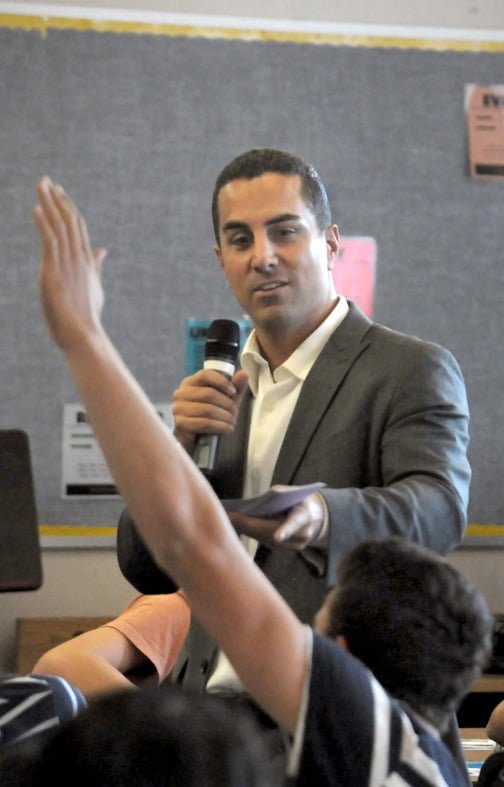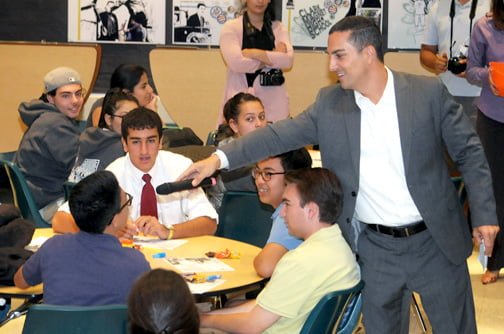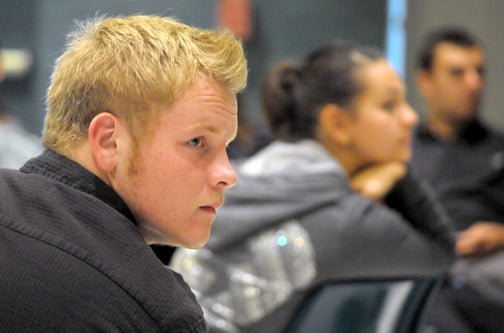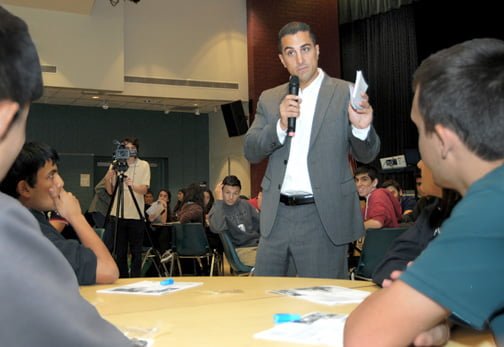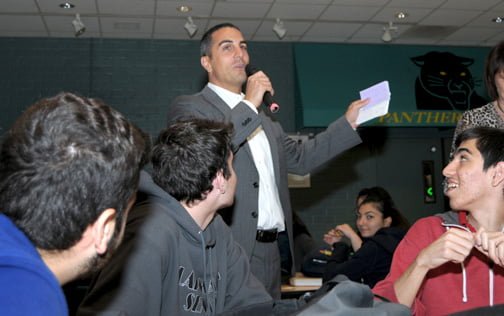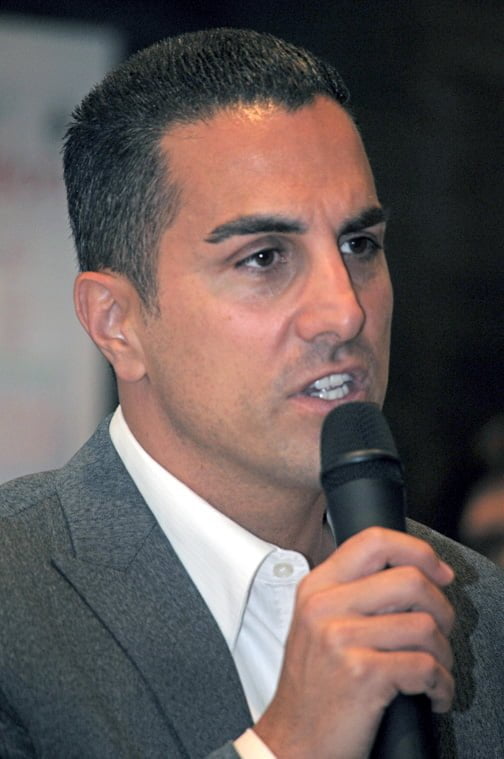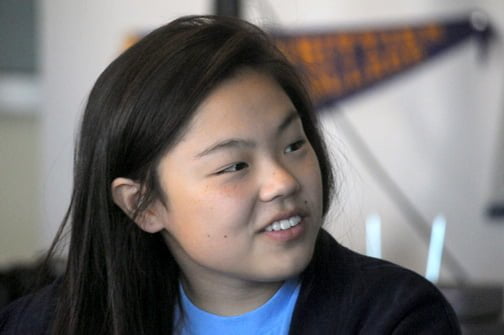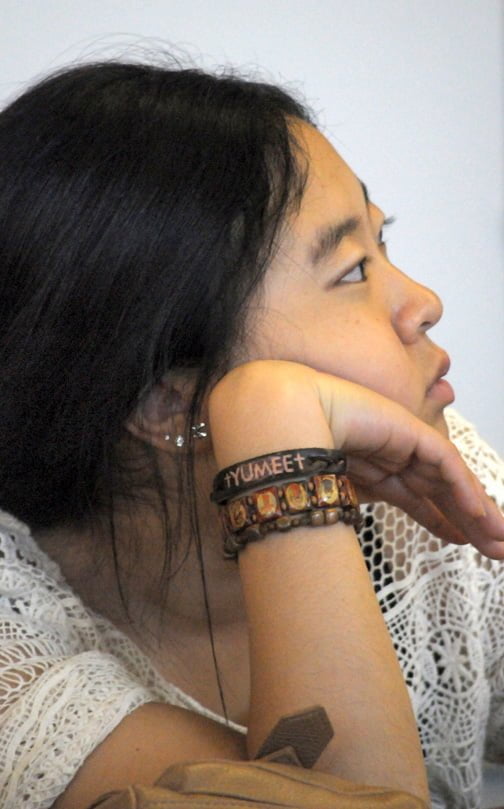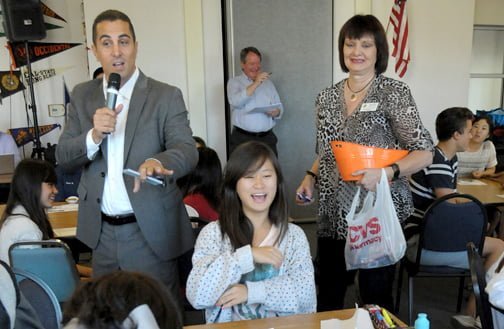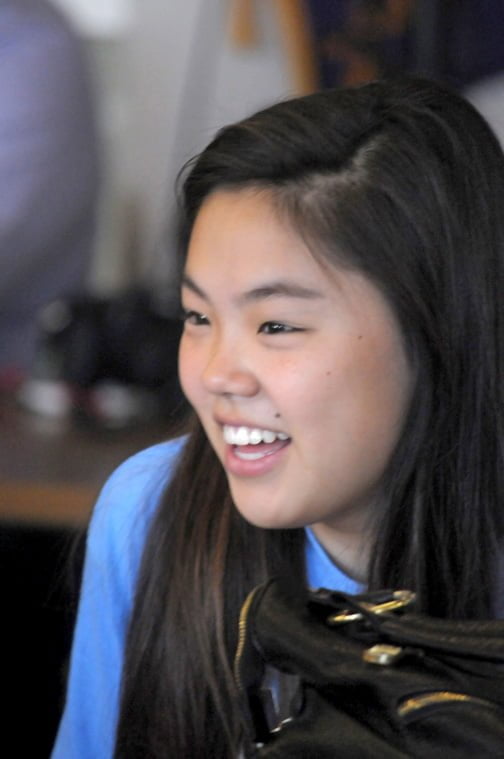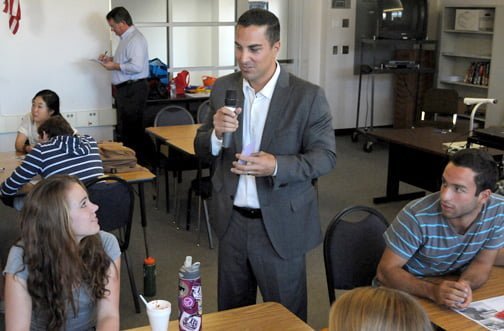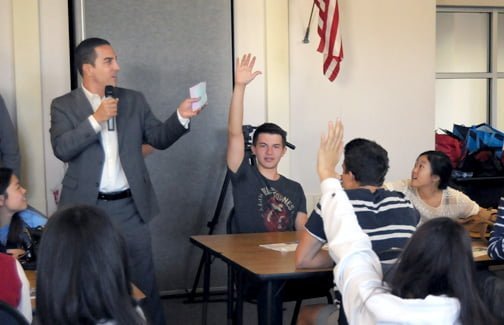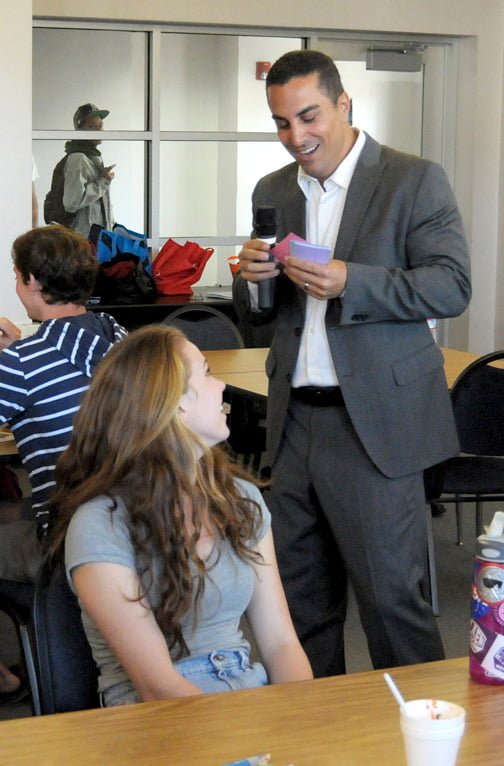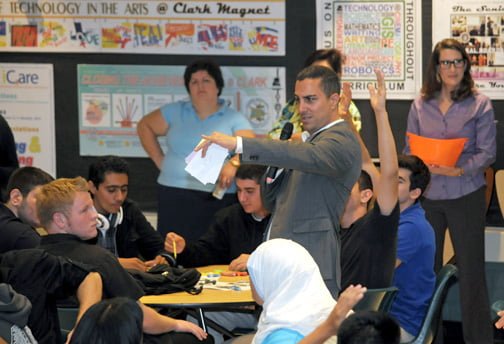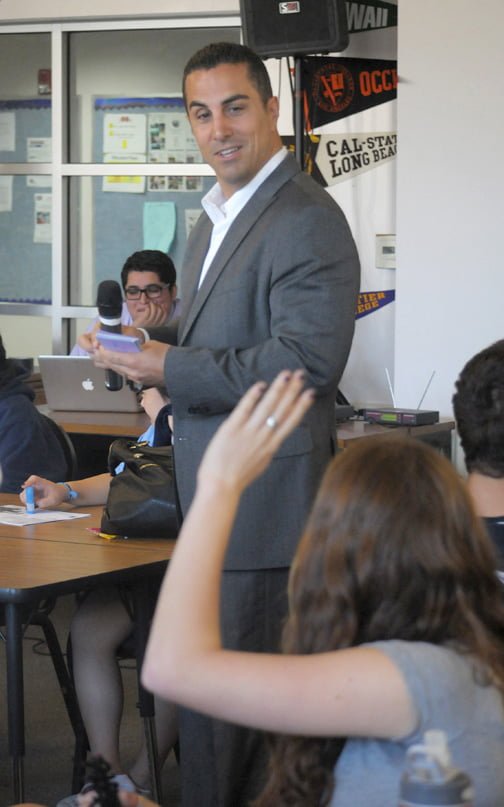
Assemblymember Mike Gatto channeled Jeopardy’s Alex Trebek to test students’ economic knowledge.
By Mary O’KEEFE
Crescenta Valley and Clark Magnet high schools participated in a “Jeopardy!”-style game courtesy of Assemblymember Mike Gatto. The purpose of the game was to highlight financial literacy in a “fun” way, he said.
“This is the second time we have done this at a high school,” Gatto said. “Last year we went to Burbank.”
The day began with a donation of $2,500 to the school from Southern California Gas Company as a bonus for participating in the event. Tony Tartaglia of Southern California Gas Company presented the check to Principal Linda Junge.
Southern California Gas Company donated the same amount to Burbank last year. Along with CV, Clark was also a recipient this year.
Tartaglia told a story to the students that when he was 15 years old, he sold his motorcycle. His parents made him invest the money in Pepsi stock. He did and then “just forgot about it.” When he was about to married, he checked his portfolio and found that stock was worth $30,000 – a lot more than his initial investment.
“Money you don’t see is money you don’t miss,” he told the students.
David Lo is a certified public accountant (CPA) from CalCPA Foundation. He welcomed the students of CVHS teacher Sam Levering’s advanced placement econ and government class to the Jeopardy event and spoke briefly about opportunities for CPAs. He reminded the students that CPAs work in a wide variety of fields including at Jet Propulsion Laboratory and in the film industry.
A brief video was then presented by the CalCPA Foundation that explained how people save and how they spend. At one point, the interviewer asked a woman if she had spent money shopping that day. She replied she had. He then asked her what she had bought – and there was silence.
Matt Denny, also from CalCPA, spoke to the students about the woman in the video who did not remember what she had bought. He said that sometimes spending is more of a habit that doesn’t really employ a thought process.
He used coffee purchases to illustrate his point.
“If you spent $5 a day at Starbucks, in a year you would have spent $2,500,” he said.
He then talked to the students about how to save, how to invest and the best ways to do both.
“Don’t spend more than you make,” he explained as to why it was important to keep and maintain a budget.
Although a lot of information was directed for when the students grew older and living on their own, Denny said it was important to be financial aware early in life.
Then it was time for the game. Gatto asked several questions on a variety of financial issues but found it difficult to stump the students.
The game, accompanied by the familiar “Jeopardy!” tune and sound effects, began with questions ranging from when is the best time of the month to buy a car to how much the average college student spends on coffee in a year. (The correct answers – given by the students – were the end of the month to buy a car because sales people need to make their quotas and college students, on average, spend $500 on coffee.)
Candy was given after each correct answer; a lot of candy was handed out.
“I am impressed,” Gatto said of the students’ knowledge. He added he hoped events like the game made it fun to learn something very important –how finances work and what every kid, and adult, should know about preparing for the future.

